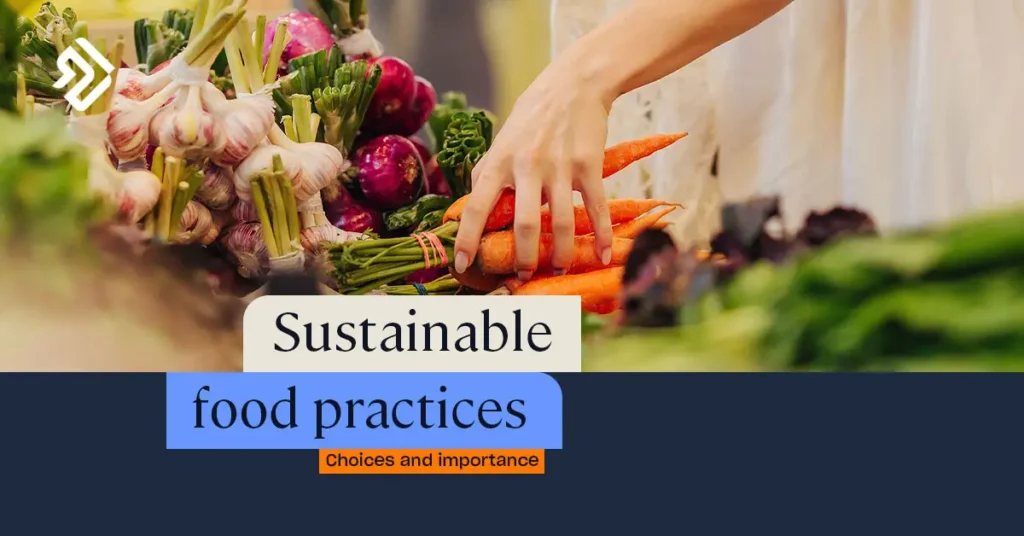In recent years, there has been a significant shift towards sustainable food practices worldwide. Consumers are becoming more conscious of the environmental impact of their food choices, leading to a demand for eco-friendly farming and production methods. From small-scale organic farms to large agricultural enterprises, there is a growing focus on reducing carbon footprints, preserving biodiversity, and promoting ethical treatment of animals. Let’s delve into some of the sustainable food practices being adopted around the globe.
Organic Farming: Nurturing the Earth
Organic farming eliminates the use of synthetic pesticides and fertilizers, focusing instead on natural methods to enrich soil health and minimize environmental harm. Farmers employ techniques such as crop rotation, composting, and biological pest control to maintain a balanced ecosystem. This approach not only reduces chemical runoff into waterways but also promotes biodiversity and supports healthier ecosystems.
Urban Agriculture: Cultivating Communities
Urban agriculture brings food production closer to consumers, reducing transportation emissions and promoting local food systems. Community gardens, rooftop farms, and vertical hydroponic setups are becoming increasingly popular in urban areas. These initiatives not only provide fresh produce but also foster community engagement, education, and food security in densely populated areas.
Regenerative Agriculture: Restoring the Land
Regenerative agriculture goes beyond sustainability by actively restoring degraded ecosystems and improving soil health. Practices such as no-till farming, agroforestry, and rotational grazing help sequester carbon, enhance water retention, and promote soil biodiversity. By mimicking natural processes, regenerative agriculture aims to reverse the damage caused by conventional farming practices and create resilient food systems.
Fair Trade: Empowering Farmers
Fair trade certification ensures that farmers receive fair prices for their products and adhere to strict environmental and labor standards. By supporting fair trade practices, consumers contribute to poverty alleviation, gender equality, and community development in farming communities worldwide. Fair trade also encourages sustainable farming practices and promotes long-term economic stability for small-scale producers.
Plant-Based Alternatives: Redefining Protein Sources
The rise of plant-based alternatives offers environmentally-friendly alternatives to traditional animal products. Beyond Meat, Impossible Foods, and other plant-based companies are innovating to create delicious and sustainable alternatives to meat, dairy, and eggs. By reducing reliance on animal agriculture, plant-based diets help mitigate greenhouse gas emissions, conserve water resources, and minimize habitat destruction.
Final Words

From organic farming to plant-based alternatives, sustainable food practices are reshaping the way we produce, distribute, and consume food. By embracing eco-friendly methods, we can protect the planet, promote biodiversity, and ensure a brighter future for generations to come. Whether you’re a consumer, farmer, or food industry professional, there are many ways to support sustainable food practices and contribute to a more resilient food system.
FAQs (Frequently Asked Questions)
1. What is the difference between organic and conventional farming?
Organic farming avoids synthetic pesticides and fertilizers, focusing on natural methods to promote soil health and biodiversity, while conventional farming relies heavily on chemical inputs.
2. How does fair trade benefit farmers?
Fair trade ensures that farmers receive fair prices for their products, adhere to strict environmental and labor standards, and promote community development in farming communities.
3. Why is regenerative agriculture important?
Regenerative agriculture aims to restore degraded ecosystems, improve soil health, and sequester carbon, creating resilient food systems that can withstand climate change.
4. Are plant-based alternatives nutritious?
Yes, plant-based alternatives can be nutritious sources of protein, vitamins, and minerals, while also offering environmental benefits compared to traditional animal products.
5. How can I support sustainable food practices as a consumer?
You can support sustainable food practices by choosing organic and fair trade products, reducing food waste, and incorporating more plant-based foods into your diet.













